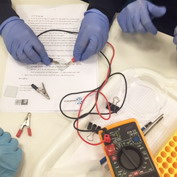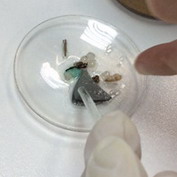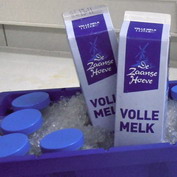- Szczegóły
- Serena Randazzo and Michele A. Floriano
After completing the first part of our work, developing and testing a module on “Nanotechnology in solar energy conversion”, three of the teachers (Anna Caronia, Tiziana Di Silvestre, Antonella Giangalanti) continued their involvement in the second part of the project in an independent way.
Czytaj więcej: second phase of the project well underway at the university of palermo, it
- Szczegóły
- Dimitris Stavrou, University of Crete
In the second phase of Irresistible in Greece, the five teachers of the first phase (“expert teachers”) train further 32 teachers (5-10 teachers each), from both primary and secondary education, in implementing in their classrooms the modules Nanoscience Applications (Greece), Plastic - Bane of the Oceans (Germany) and Healthy Ageing Starts with Mammae (Netherlands).
Czytaj więcej: working with teachers of the second phase in greece
- Szczegóły
- Ron Blonder and Sherman Rosenfeld, Weizmann Institute of Science, Israel
How can a STEM (Science, Technology, Engineering, and Mathematics) curriculum development project insure that the learning module it develops is adapted to minority groups in its country, especially those that speak different languages than the majority culture?
Czytaj więcej: adapting an RRI module to Arab students in israel
- Szczegóły
- Sevil Akaygün, Bogazici University
The second phase of the Project Irresistible in Turkey has started with a workshop on “Nanotechnology Applications in Health Sciences” with the participation of 25 science teachers in 16-17 June 2015. The other two modules selected by the Turkish CoL included “Plastic-Bane of the Oceans” developed by IPN, Germany and “Adaptation to Climate Change” developed by Jyväskylä University-Finland. The “Plastic-Bane of the Oceans Module” was introduced to 12 science teachers at a workshop in November 8, 2015 at Bogazici University.
- Szczegóły
One focus of the IRRESISTIBLE-project is inquiry-based science education. This is achieved by developing the teaching modules using an adaptation of Roger Bybee’s 5E-method (the 6E-method). In the engage/explore phase, performing experiments can help the students identify with the subject. In the explain-phase, students can perform experiments to answer their personal research questions.











